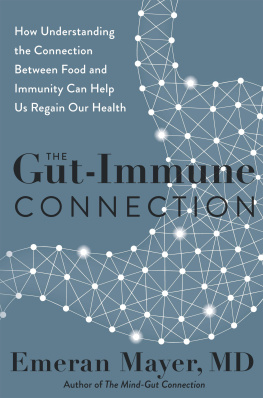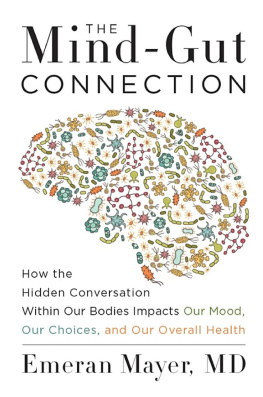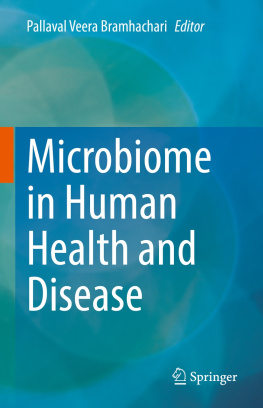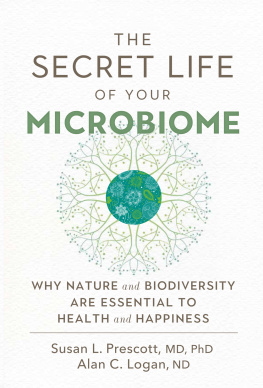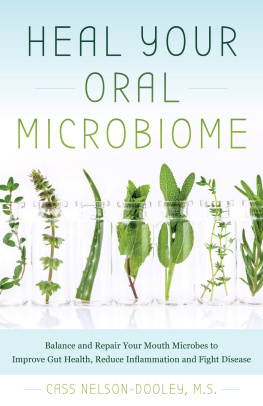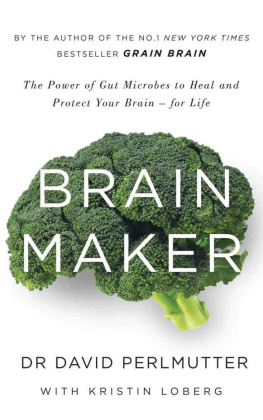In my last book, The Mind-Gut Connection: How the Hidden Conversation within Our Bodies Impacts Our Mood, Our Choices, and Our Overall Health, I detailed how the brain and the trillions of microbes living in our gut communicate in ways that profoundly influence our brain, gut, and well-being. I came to this perspective after three decades spent as a gastroenterologist studying brain-gut interactions in my patients.
But the world of research (and the world at large) has changed dramatically over the last five years: while microbiome science has continued to grow exponentially, and many human studies have confirmed earlier preclinical findings, our unfolding, multifaceted public health crisis has engulfed a large proportion of the US population and many countries around the globe in an epidemic of obesity and compromised metabolic health involving not only the brain, but many other organs. At the same time, as I wrote this book, the world was plunged into a pandemic in which an invisible microorganism took center stage and brought many segments of society to a sudden halt, painfully demonstrating the ingenuity and almost unlimited power of microbes.
Even though Ive long held a holistic view of life, my scientific career has ultimately taken me full circle, from a reductionistic focus on the biology of brain-gut interactions back to the concept of the interconnectedness of the health of humans and of the environment, and the microbiome, with diet playing the key role in these connections. To understand its complexity and to identify a way out of our current crisis, this concept comes with a requirement for an ecological and systems view of food, health, and the environment. A conversation is constantly unfolding within us, influenced by our thoughts and emotions, our lifestyle, and the food we eat; the exchange between these factors occurs as a circular process in which the brain influences the gut microbial signals, which then feed back to the brain and body.
Miscommunications in this system are accompanied by a compromised regulation of the millions of immune cells located in our gut, the gut-based immune system, resulting in a chronic, inappropriate engagement of the immune system. This chronic immune activation not only can increase gut permeability, but it can spread throughout the body, resulting in increased susceptibility to a number of chronic noncommunicable diseases and disordersincluding obesity and metabolic syndrome, diabetes, and heart disease, as well as Parkinsons disease, autism spectrum disorders, depression, accelerated cognitive decline, and, ultimately, Alzheimers disease. As we learned in the current pandemic, a compromised gut-based immune system also leaves us vulnerable to susceptibility and severity of viral pandemics like COVID-19.
Over the last decade, disorders such as theseall related to altered brain-gut-microbiome interactionshave seen such a steep increase in prevalence that theyve now reached public health crisis levels. The dramatic numbers not only illustrate the scope of the problem, but also point toward the interconnectedness of many if not most NCCDs. While our health-care system, with the help of the pharmaceutical industrial complex, has been able to keep the mortality from these diseases steady, or even reduced for some of them, their overall prevalence continues to increase in younger people and in developing countries around the world.
This is where the ideas of network science and systems biology become critical. This universal conceptual approach has become essential to understand biological interactions, all the way from molecular gene networks and microbial networks to disease networks and large-scale interactions within natural ecosystems on the planet. What initially may sound like esoteric theory has in reality become an important scientific approach that offers a critical holistic understanding of health and disease. Lets take the communication between the plants that we eat and the soil they grow inwhich, incidentally, has its own extensive microbiomeas an example. Microbes living in the soil interact with the root system of the plants, providing essential micronutrients and soil organic matter to their growth. The network of immune, hormone-producing, and nerve cells located in our gut wall and the gut microbiome communicate in a similar way as soil microbes interact with plant roots, even using some of the same signaling molecules. Network science is being applied to understand the interactions of soil microbes with the plants, as well as the interactions of our food, our gut microbes, and our bodies.
In addition to a poor diet, chronic stress and negative emotions impact the brain-gut-microbiome network, which is why the effects of emotional turmoil and stress mirror the negative effects of an unhealthy diet; the two seemingly unrelated but often co-occurring influences can potentiate each other. Its because the signaling molecules generated by this stress-modulated gut connectome, in particular the low-grade immune activation and many neuroactive molecules, feed back to the brain and reinforce the altered brain-gut communication. In fact, it is now becoming apparent that such circular interactions involving the gut microbiota, their metabolites, and the associated immune activation in the gut play a causative role in several chronic brain disorders, in particular depression, ASD, and Parkinsons and Alzheimers diseases.
And so, in order to understand and ultimately overcome our current health problems of both noninfectious chronic illness and acute life-threatening pandemics, we cannot continue our futile journey from one new medication or dietary approach to the next. We must take into consideration all aspects of life and our interactions with the environment using a systems biological approach in order to return our immune system to its normal function of protecting us from invading pathogens and increase our resilience, rather than attacking our bodies.
Making sustainable changes to our diet is a crucial first step toward reestablishing health-promoting interactions between our food, our gut microbiome, and our immune system. Theres a rapidly growing body of scientific evidence that shows different types of largely plant-based diets are not only associated with better health of the gut, the brain, and the body, but also that such diets actually play a causative role in better health. While this is largely demonstrated in studies exploring depression, cognitive decline, neurodegenerative diseases, and autism spectrum disorder, it can also be applied to a number of other diseases, such as coronary artery disease, fatty-liver disease, and inflammatory bowel disease.
In The Gut-Immune Connection, I propose a radically different approach to deciding whats best for our health, both in terms of what we eat and when we eat. First, rather than obsessing over the right amount of macronutrients we eat, I urge the reader to focus on consuming foods that support the health, diversity, and well-being of the trillions of microbes living in our guta consideration that is mostly lacking in the Western diet, and which continues to be neglected in the majority of fad and weight-loss diets. This change in dietary dogma means we have to eliminate ultraprocessed foods, which are packed with empty calories and chemicals but are devoid of fiber. In contrast, we have to dramatically increase microbe-targeted foods, which are poorly absorbed in our small intestine (thus providing fewer calories) and require the metabolic machinery of our gut microbiome to break them into smaller, absorbable, health-promoting molecules. These foods not only increase the diversity and richness of the gut microbiome, but they provide a large variety of fiber molecules as well as thousands of so-called polyphenols, many of which are transformed into health-promoting, anti-inflammatory signaling molecules in our gut, which after absorption into the bloodstream are distributed throughout the body.

